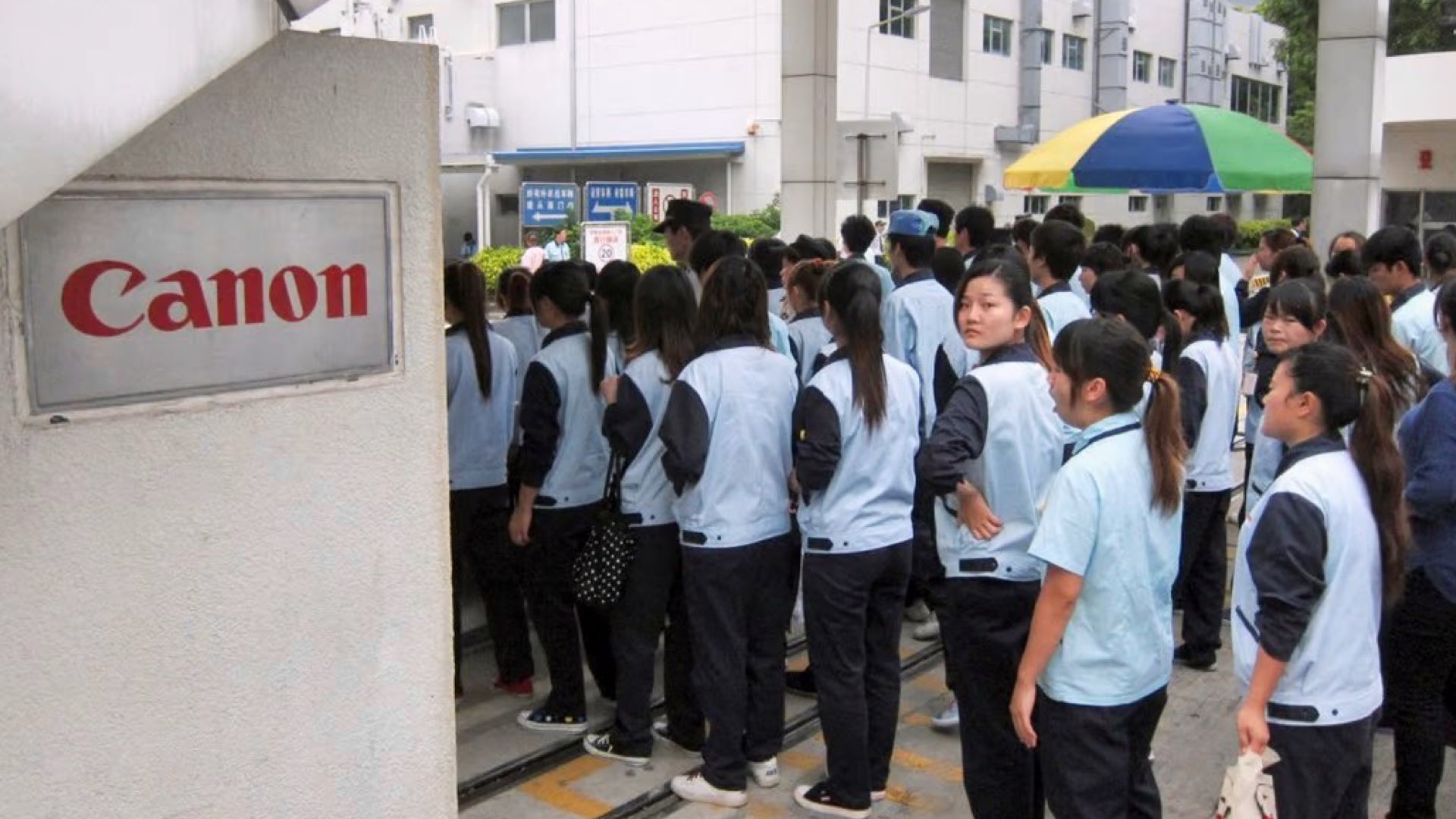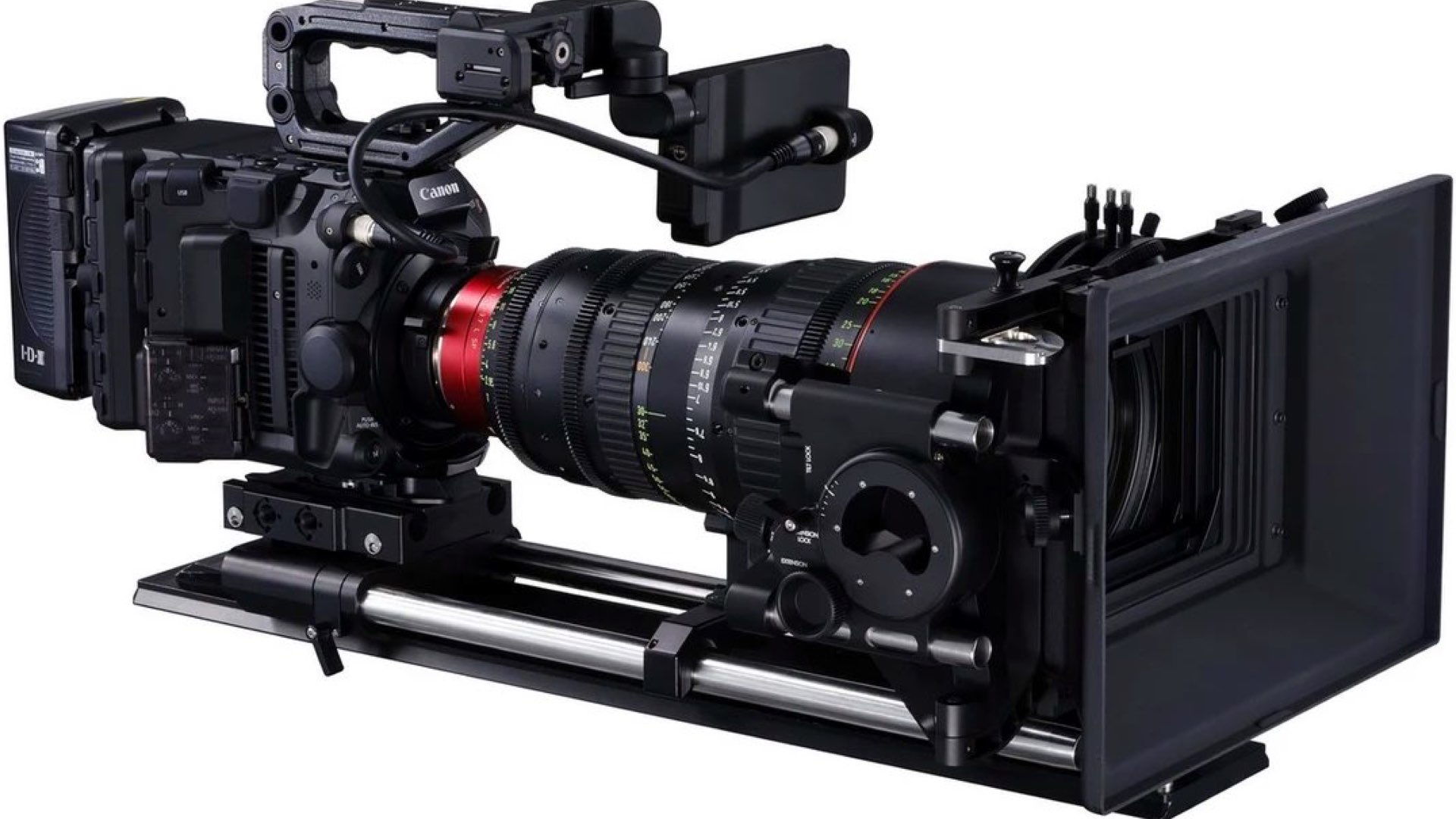Canon announces the full shutdown of its major plant located in China – the Zhuhai factory. The 32-year plant is the only production base for digital cameras, sensors, and lenses among Canon’s 15 companies in China. The decision may indicate Canon’s intentions to reduce the number of camera models and to focus on those with the highest margin level (pro mirrorless?)

After careful consideration, a difficult decision has to be made: to terminate the company’s production.
Shen Yue – Canon China public relations department representative
Canon closes its main camera factory in China
In continuation to our previous report regarding Canon terminating its DLSR Flagship (Canon ESO 1D X Mark III), here’s another proof that Canon reduces its camera manufacturing. Canon has announced to cut production at the Zhuhai factory. According to reports, Canon will close part of its Zhuhai factory in southern China, with a full shutdown of the 32-year plant being considered, due to shrinking demand in the digital camera market and the continued fallout from the coronavirus.

1,317 employees are being affected
Rumors about the closure of the entire facility in Guangdong province started on Thursday with an internal company letter circulating online. The announcement, which was issued on Wednesday, said that “the operation of the company is facing unprecedented difficulties. Despite the joint efforts of the company and all employees, it has failed to reverse the situation” said Canon China public relations department representative Shen Yue. “The headquarters has to adjust the overall operation structure of the group. After careful consideration, a difficult decision has to be made: to terminate the company’s production” he states. Furthermore, according to Shen, it is not clear how many employees at the Zhuhai facility will be affected, and the company has yet to decide whether the relevant production line will be relocated, As of the end of 2020, the Zhuhai factory had 1,317 employees, according to the company’s website.

“Because of smartphones”
Shen emphasizes that because of the development of the smartphone, the market for compact digital cameras has been shrinking. Other shocks include the pandemic and the shortage of chips. It’s worth mentioning that by the end of 2020, investment in the Zhuhai subsidiary had reached $220 million, with 1,317 employees. Its production of lenses totaled 12.29 million in 2020, and it produced 1.03 million digital cameras and 94,000 digital video cameras. The plant is Canon’s only manufacturing base in the Chinese mainland for digital cameras, digital video cameras, image sensors, and lenses (source).

Canon’s CEO: “We are steadily shifting manufacturing”
The announcement came in a conjunction with the CEO statement regarding Canon’s new strategy. “It is natural that mirrorless cameras will become the mainstream of digital cameras… The market needs are acceleratingly shifting to mirrorless cameras. In line with this, we are steadily shifting manufacturing” said Canon’s Chairman and CEO Fujio Mitarai when he explained about the decision not to release a new DSLR flagship (Read: Canon’s Chairman and CEO Fujio Mitarai: “EOS-1D X Mark III is our last DSLR”).

Closing thoughts
Canon’s decision to close its main factory in China demonstrates its new strategy regarding the Imaging Systems division. Allow us to guess here that Canon is going to focus on its pro mirrorless lineup and less on DSLRs and Point N’ Shoot cameras. Canon knows that high-end mirrorless (EOS R5, EOS R3…) is a very promising niche that will not be intimidated by smartphones. Nevertheless, the high price tag makes these products to be relevant to pro users only. Not so sure if Canon wants that. However, we’ll see a significant reduction in the number of camera models Canon offers to market.
Product List
Here’re the products mentioned in the article, and the links to purchase them from authorized dealers.
- Canon EOS-1D X Mark III
- Canon EOS R3 Mirrorless Camera
- Canon EOS R5 Mirrorless Camera

















Labour price start to be too high in China. China gouvernement is building new factory in Africa since years anticipating this trends.
A lot of the demand was from amateurs and semi-pro’s who’ve realized that they can now go 5-10 years before upgrading, not unlike modern workstations/laptops/tablets/phones that get get replaced when newer OS/software won’t run on them.
Perhaps look at the overblown prices for your cameras if you really want to increase sales.
I heard the Japanese government is offering huge incentives for factories to move out of China back to Japan.